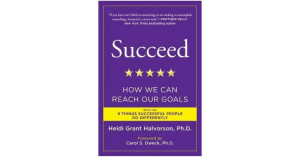Do you have goals? Can science help you reach them? Is it possible for you to be “primed” to achieve a goal without your conscious awareness? Dr. Gary Latham has answers. As Professor of Organizational Effectiveness at the University of Toronto, he has researched goal setting for decades. He has written several books on the read more…
Motivate for Success: the Science of Goal Setting









